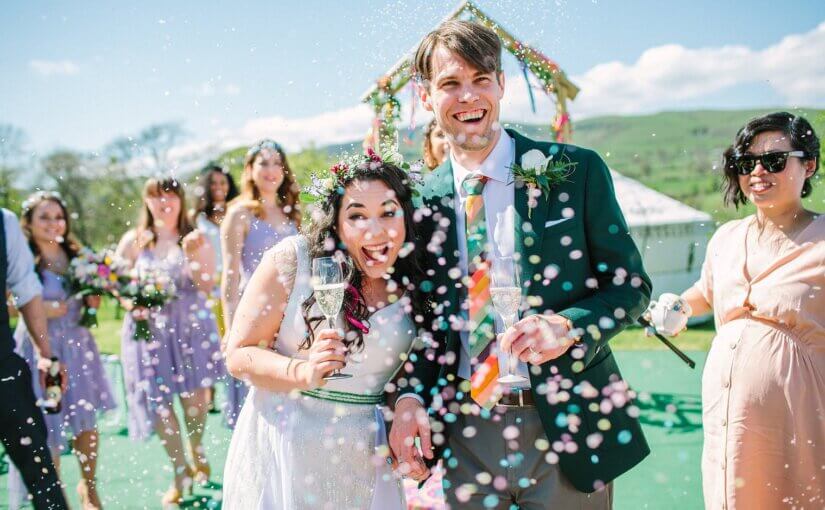If you want to honour traditions from different types of cultural or religious wedding ceremonies, or you and your partner have different beliefs (or even no beliefs at all), then you may be considering a non-denominational ceremony for your wedding.
Non-denominational weddings fit in their own category, in that they can be whatever you want them to be. In some respects, they’re not too dissimilar from a traditional wedding ceremony, but may include rituals or traditions from other types too, like Jewish or Hindu ceremonies.
Because there’s the option for so much personalisation, how do you know if this kind of wedding ceremony is right for you? What type of couples usually choose a non-denominational wedding? What traditions can you include? And what order should you follow?
There are a lot of questions about non-denominational ceremonies. We’re here to answer as many of them as possible, to give you all the information you might need to decide whether it’s the right choice for you.
So, read on to discover all about non-denominational weddings. For more information about the different types of wedding ceremonies around the UK and beyond, read our ultimate wedding ceremony guide.
What is a non-denominational wedding ceremony?
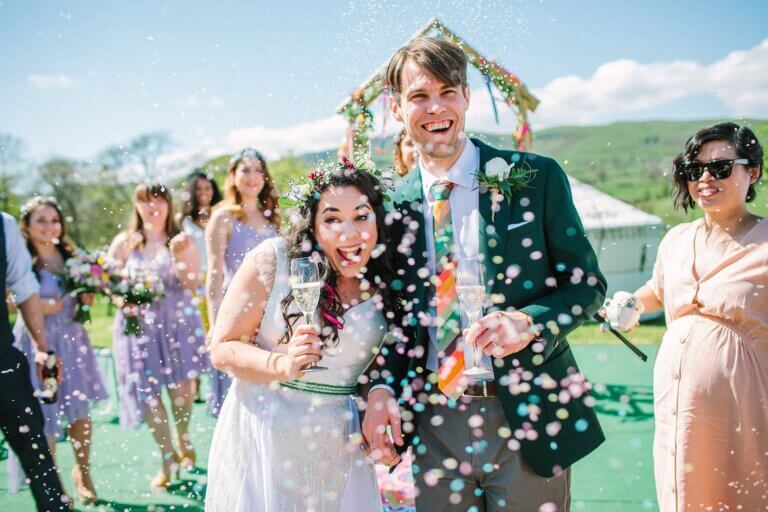
A non-denominational ceremony is a type of wedding ceremony that doesn’t specifically fit into its own category. It isn’t linked to a certain religion, but can include references to God and religion, as well as different traditions or rituals.
This means there are plenty of opportunities for personalisation, so you can really make your wedding unique and specific to you.
What date should you have a non-denominational wedding ceremony?
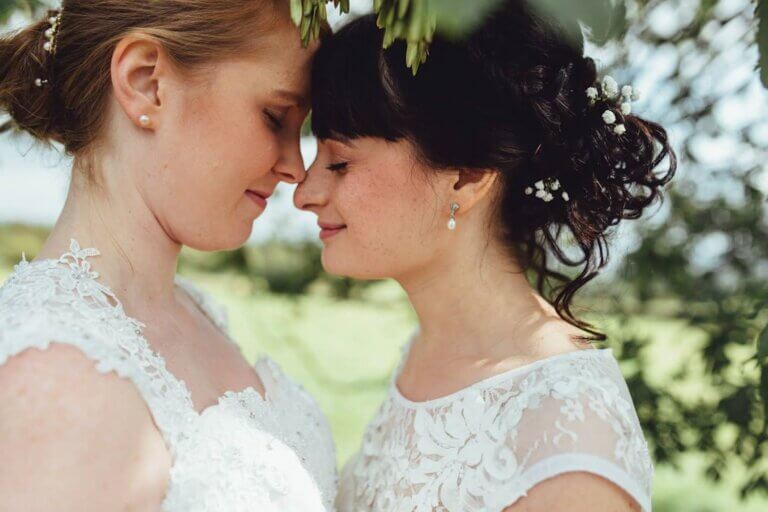
Because non-denominational weddings aren’t associated with a specific religion, you have total flexibility over the date you choose. You might want to have yours on a Saturday, which is the most popular day to get married, and means your guests are more likely to be free, or a Tuesday, which is generally the cheapest day to have a wedding.
That being said, if you’re spiritual in some way, you may want to pay attention to the date you choose. For example, consulting astrology or your birth chart can tell you your most auspicious date for getting married – something Hindu couples will ask their priest about.
What time does a non-denominational wedding ceremony take place?
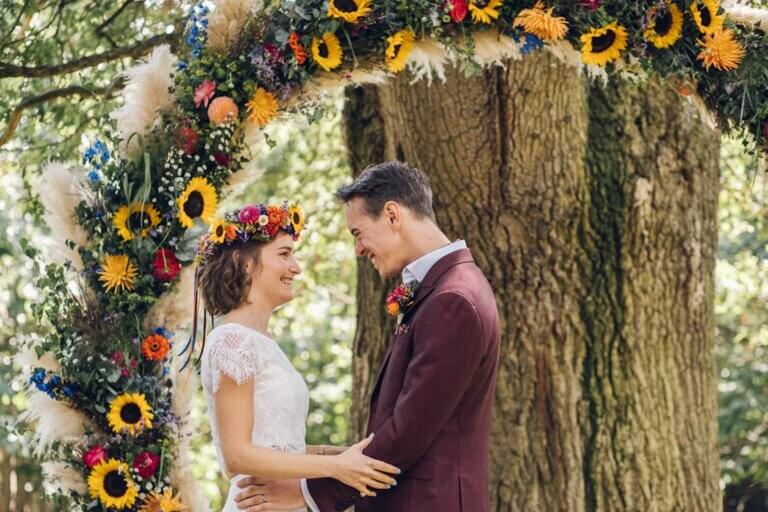
A non-denominational wedding ceremony can start at any time. If you’re getting married at a venue such as a hotel, restaurant or outside space, you have free rein over your wedding. If you choose to get married at a registry office, ceremonies usually start on the hour, with several options available each day.
If you’re spiritual, you may want the ceremony to start at a specific time. Or, you may consider a twilight wedding, when the ceremony itself is much later in the day to take advantage of the natural beauty of the setting sun.
How popular are non-denominational wedding ceremonies?
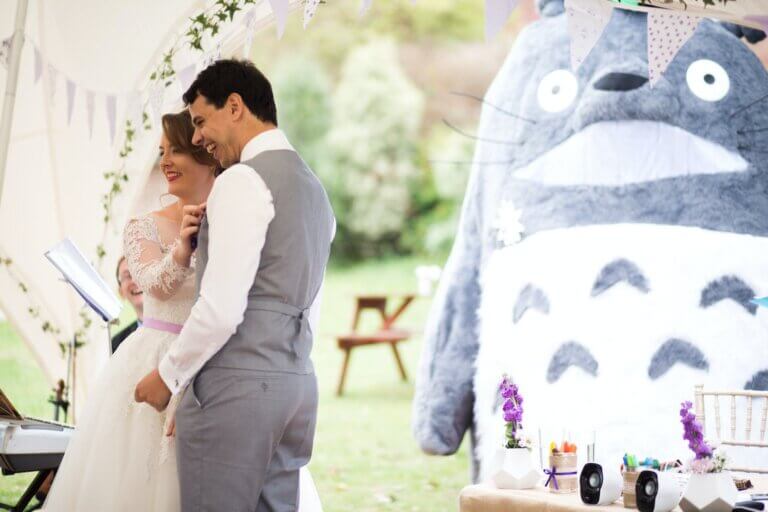
It’s hard to determine how popular non-denominational weddings are because they don’t fall into a specific category like Catholic ceremonies or Muslim weddings.
But, thanks to how much personalisation they offer, they’re rising in popularity. They’re reminiscent of traditional wedding ceremonies, but far more specific to you.
What type of couples usually choose a non-denominational wedding ceremony?
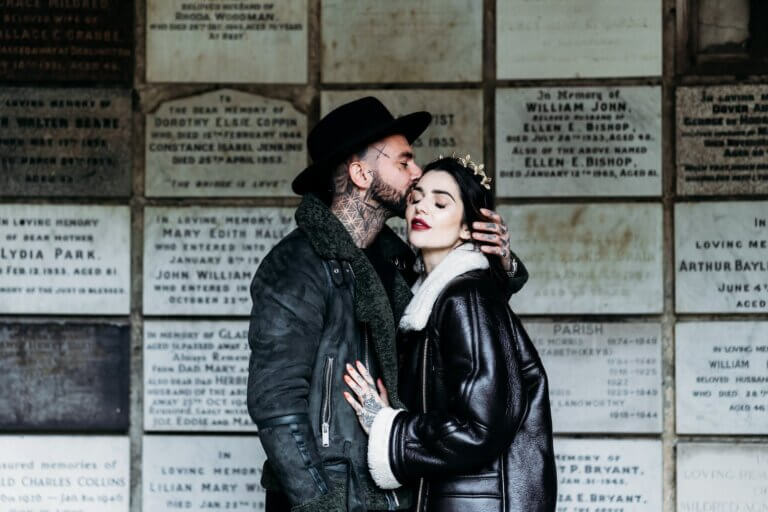
Because they offer so many ways to make it your own, many different types of couples choose to have a non-denominational ceremony. It may be couples who have no religious beliefs but want to include certain traditions or rituals, religious couples who want more choice over what’s included in the ceremony, LGBTQ+ couples, or mixed-faith couples who want to honour both religions.
Are non-denominational weddings expensive?
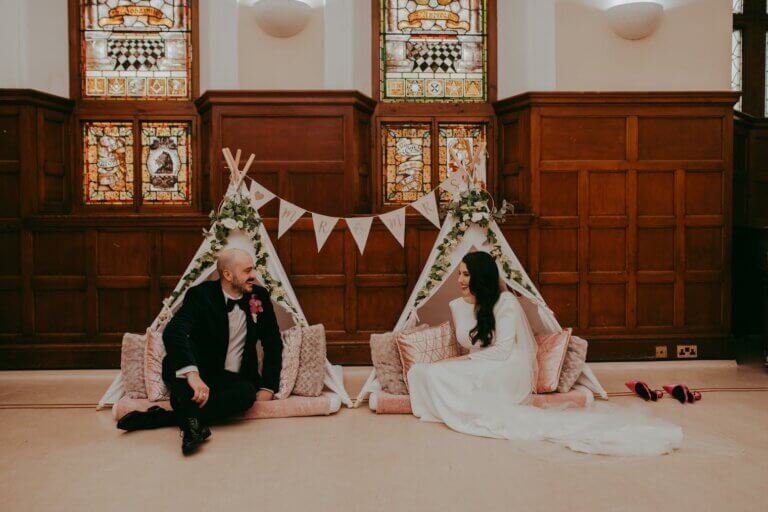
Our 2023 Wedding Report revealed that the average cost of a wedding in the UK is £19,184, which includes non-denominational weddings. However, because there are no specific expectations with a non-denominational wedding, it’s possible that there could be a much wider variation in budgets used by couples. So, whether you have a small or modest budget, or money’s no object, you can still plan a fabulous non-denominational ceremony.
For ideas and inspiration on ways to cut costs for your big day, read our guide on how to save money on your wedding.
Who officiates a non-denominational wedding ceremony?
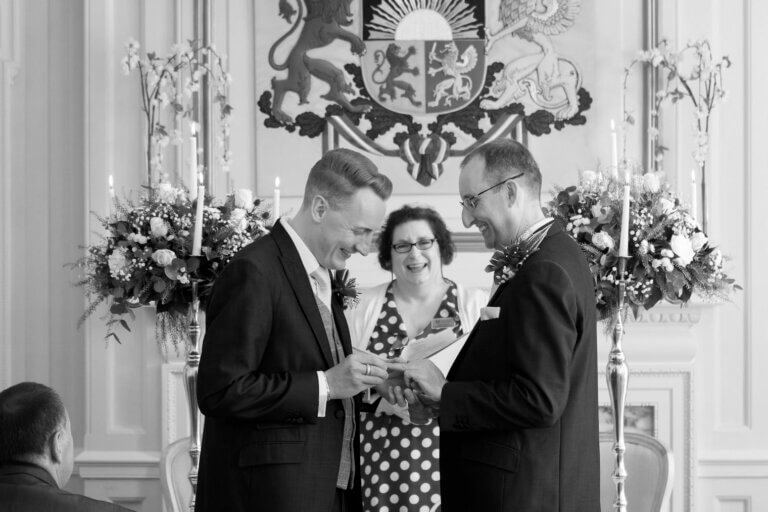
Usually, to ensure the marriage is legally binding, you would hire a registrar to officiate your wedding. However, personalisation is key when it comes to non-denominational weddings, so many couples choose to hire a celebrant. If you want your ceremony to include different references to religion or comedy, be uplifting and motivating, or absolutely anything else, hiring a celebrant can help make that happen. But remember, to make sure everything’s legally binding you still need to hire a registrar too!
Is a non-denominational wedding legally binding?
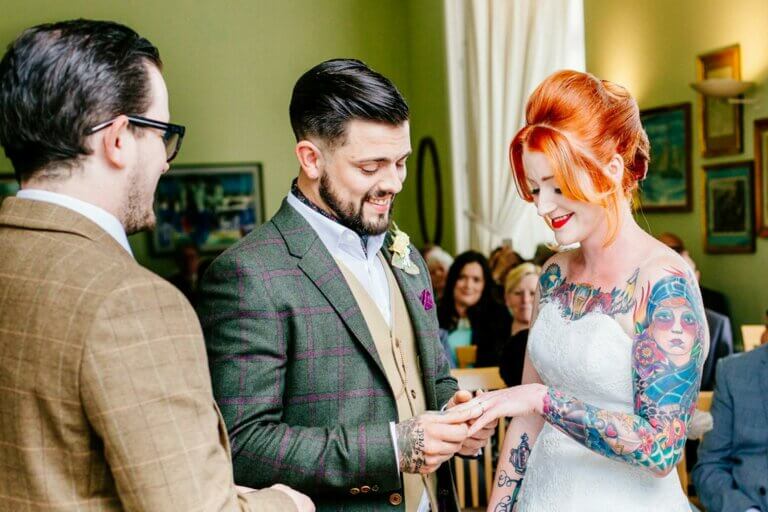
Yes, if officiated by a registrar, a non-denominational wedding is legally binding in the UK.
Where are non-denominational wedding ceremonies held?
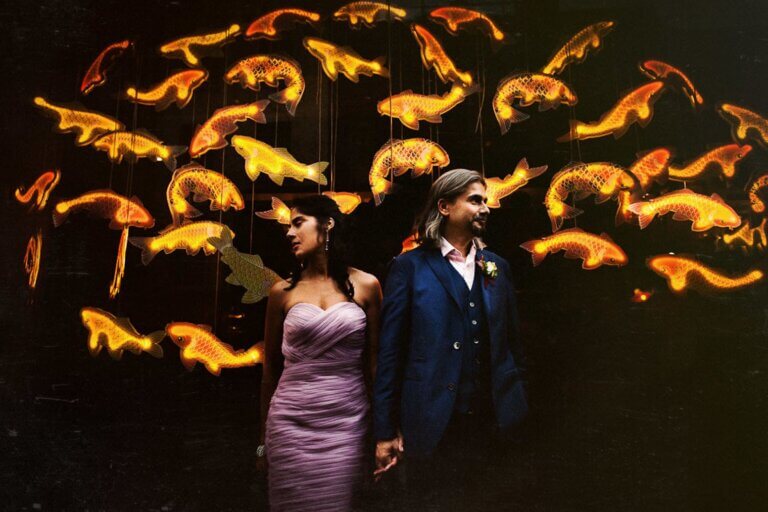
Like traditional wedding ceremonies, non-denominational ceremonies can be held practically anywhere. Our 2023 Wedding Report revealed that the most popular venues in the UK are:
- Hotel
- Barn
- Country house
- Event venue
- Stately home
- Outdoors
- Castle
The only limitations on this will be places of worship, which can generally only be used as a wedding ceremony venue if you’re a member of that specific religion or congregation. So, let your imagination run wild when it comes to planning your dream ceremony!
How long are non-denominational wedding ceremonies?
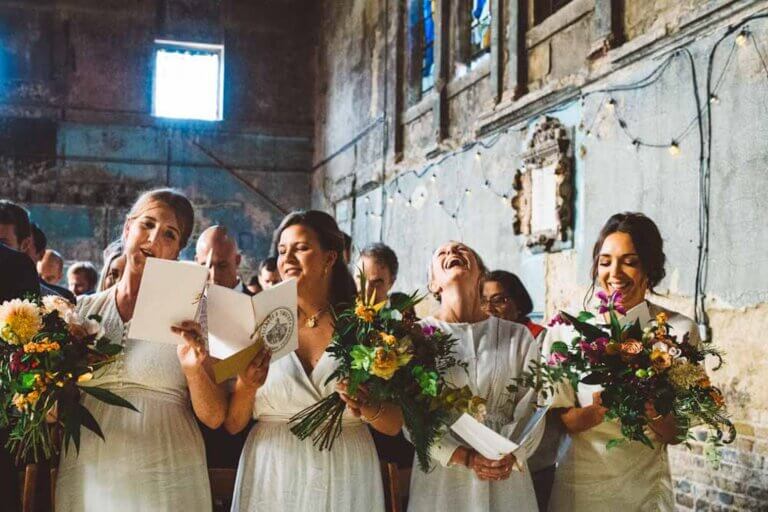
While non-denominational ceremonies do allow for all kinds of personalisations, they’re not too dissimilar from traditional ceremonies, so often last between 30 and 45 minutes. It all depends on the number of traditions and rituals you choose to include, which always means they could be a little shorter or longer.
To find out more about the lengths of different ceremonies around the UK and beyond, read our guide to how long wedding ceremonies take.
What is a unity ceremony at a non-denominational wedding?
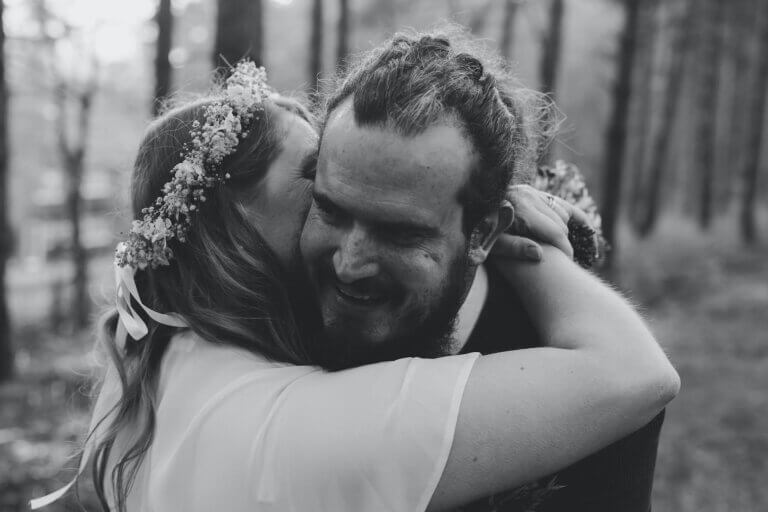
A unity ceremony is a lovely and elegant ritual that represents two people coming together as one. It’s a symbolic ceremony that involves the couple doing something together, which could be something small, like tying their hands together, or larger, like planting a tree. It’s something many couples like to include, and not seen only at non-denominational weddings.
What type of unity ceremony could you do at a non-denominational wedding?
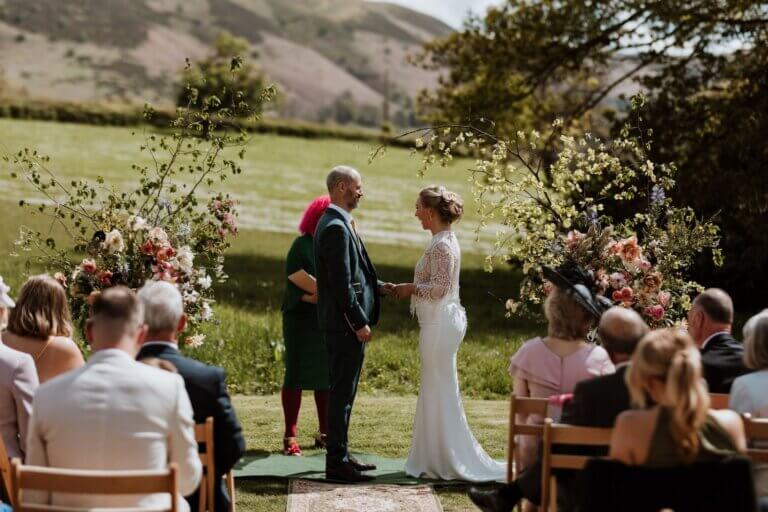
Some examples of unity ceremonies include:
- Lighting a unity candle, , which is when the couple each lights a candle, which are then used to light a single third candle.
- Sand pouring, when the couple pour different coloured sand into a vase or jar to create a lovely blended pattern.
- Handfasting, where the officiant binds the couple’s hands using a ribbon.
- Tree planting, where the couple plants a sapling so they can watch it grow into a strong tree, which reflects their ever-growing relationship.
- Releasing a single lantern into the night’s sky, which symbolises the couple’s shared dreams and aspirations taking flight.
These are just a handful of the many possible unity ceremonies you could include in your own celebration. As with most aspects of a non-denominational wedding, you can choose something totally personal to you.
What words are exchanged at a non-denominational wedding ceremony?
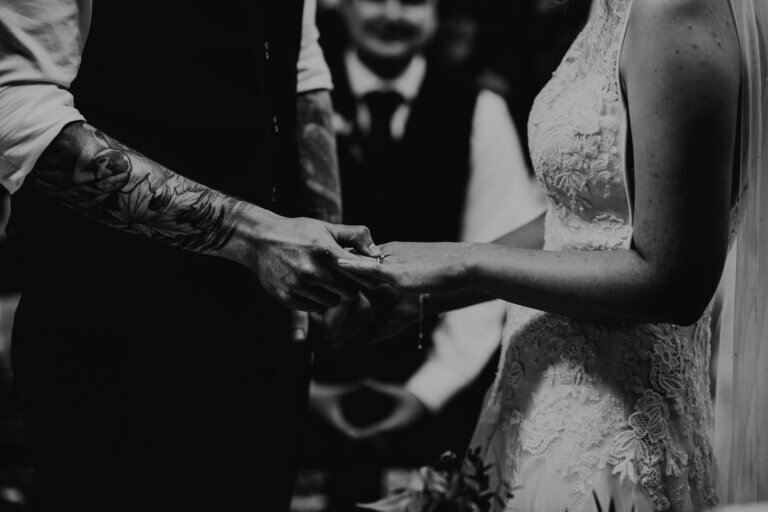
The vows that are exchanged at a non-denominational wedding also offer a huge amount of flexibility. You may choose to be fed words by the officiant which you can repeat, or you might like to write your own vows which you can either memorise or read. Unlike with a registry office ceremony, you can include as many references to God and religion as you wish.
Remember, as well as being a romantic and personal celebration, a marriage is also a legal process. So, while you can write your own vows, you’ll also need to say the declaratory and contracting words, which are along these lines:
Declaratory words
“I do solemnly declare that I know not of any lawful reason why I [YOUR FULL NAME] may not be joined in matrimony to [YOUR PARTNER’S FULL NAME].”
Contracting words
“I call upon these persons here present to witness that I, [YOUR FULL NAME], do take thee [YOUR PARTNER’S FULL NAME] to be my lawful wedded [WIFE/HUSBAND/SPOUSE/PARTNER IN MARRIAGE].”
What traditions are there at a non-denominational wedding ceremony?
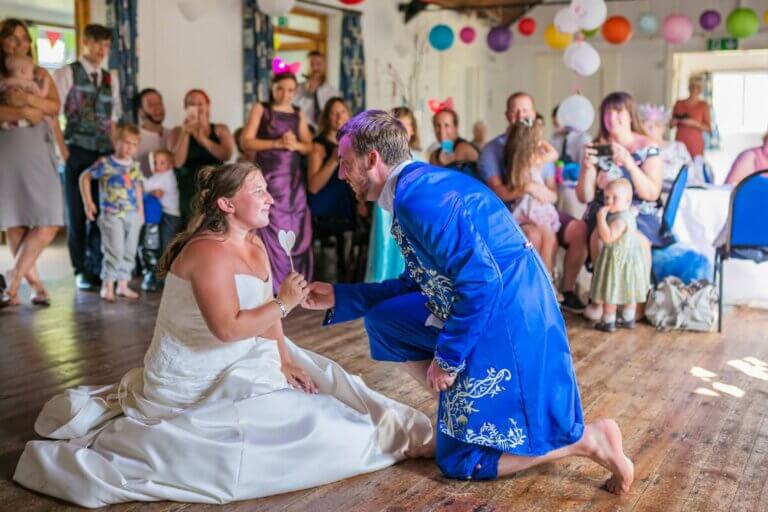
A non-denominational ceremony is a lot like a traditional wedding ceremony, so there’s quite a lot of crossover when it comes to traditions. Plus, because they’re so customisable, you may want to introduce different or new traditions. But, to get you started with what you might want to include in your own ceremony, here are just a few common non-denominational wedding ceremony traditions:
- The processional and recessional, when the couple walks down the aisle accompanied by the rest of the wedding party.
- Personalised vows, which the couple can write themselves.
- The exchanging of rings (or similar if the couple have chosen not to wear rings).
- A unity/unifying ceremony, which symbolises the couple coming together as one.
- Readings, poems or songs, with readings being performed by the officiant, celebrant or a loved one.
- Wedding music that holds sentimental value.
What do you wear at a non-denominational wedding?

You can wear whatever you like at a non-denominational wedding, whether it’s a white bridal dress, a flowery summer-style dress, a suit, or your swimwear (that is, if it’s on a beach, rather than a golf club – but you do you!).
What is the order at a non-denominational wedding ceremony?
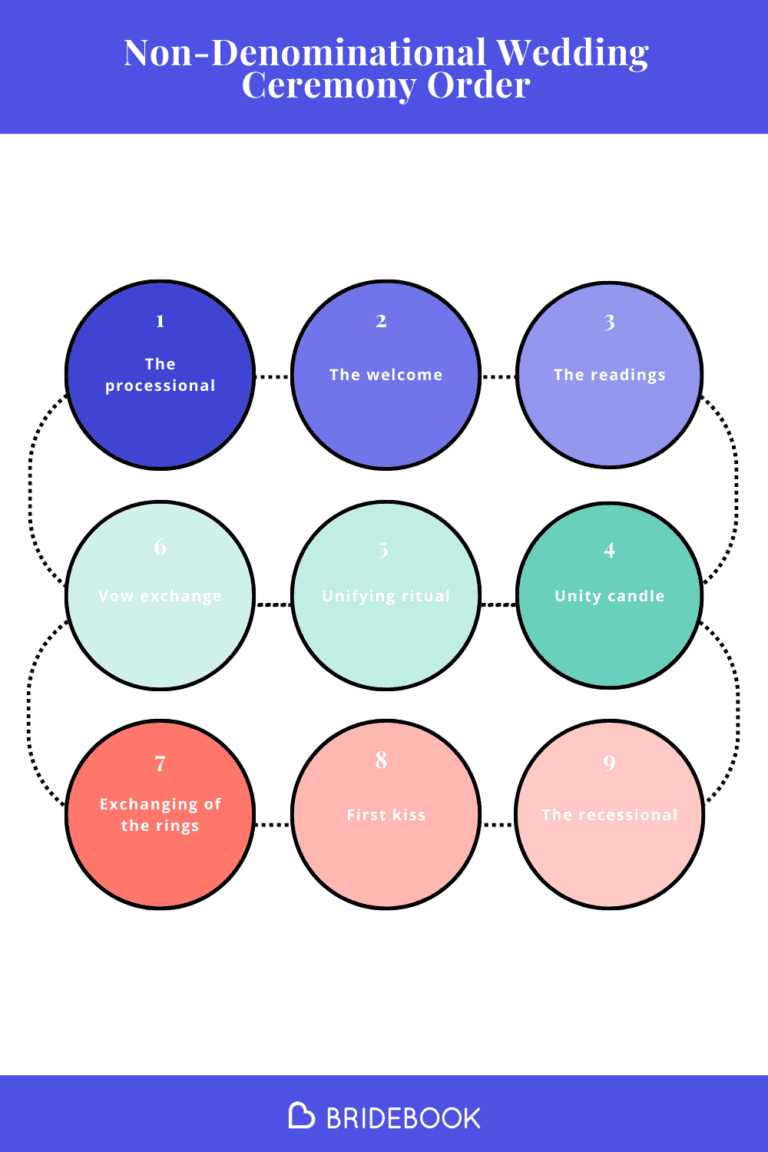
The order of a non-denominational ceremony is fairly close to that of a traditional wedding ceremony, only with the addition of certain songs, traditions or rituals that you may want to include. Because of this, every non-denominational ceremony is different, but will often have an order that looks something similar to the below:
1. The processional
The ceremony begins with the wedding party entering the venue and walking down the aisle in a similar order to that of a traditional wedding (and with a lot of flexibility):
- The officiant (anyone who has been ordained)
- The groom
- Best man
- Groomsmen
- Bridesmaids
- Maid of honour
- Ring bearer
- Flower girl
- The bride (with one or both parents)
For LGBTQ+ couples, you may want to have an order similar to this, or many couples choose to walk down the aisle together – whatever works for you.
2. The welcome
The officiant welcomes everyone to the ceremony and explains the significance of marriage. If you’ve hired a celebrant, this is when they’ll go into your background and the two of you as a couple.
3. The readings
If you’ve chosen to include readings or songs, the first will often come after the welcome. This could be a love poem, inspiring quotes, song lyrics, or a meaningful extract – anything you like that fits the theme and style of your ceremony. Unlike with a registry office ceremony, anything you include can make references to God or religion.
4. The unity candle
To symbolise the two of you coming together, you can each light a candle which is then used to light a third candle, representing you coming together as one.
5. The unifying ritual
Many couples have a unifying ritual in addition to (or instead of) a unity candle. This could be anything from handfasting to circling a ceremonial fire.
6. The exchanging of vows
This is when you’ll recite either the vows you’ve chosen to write or repeat the vows fed to you by the officiant. Many couples still love to honour the wedding tradition of saying, I do.
7. The exchanging of rings
If you’ve chosen to exchange rings, this will happen after the vows. Some couples may also choose to exchange a different item.
8. The declaration of marriage and first kiss
The officiant will excitedly declare the two of you as officially married, and invite you to share your first kiss as a wedded couple. It’s at this moment that your guests will erupt into cheers and joyous tears.
9. The recessional
As a married couple, the two of you leave the venue followed by the wedding party in reverse order to how they entered. Then, it’s time to head out and party (after a few photos for the wedding album, of course).
How do you book a non-denominational wedding ceremony?
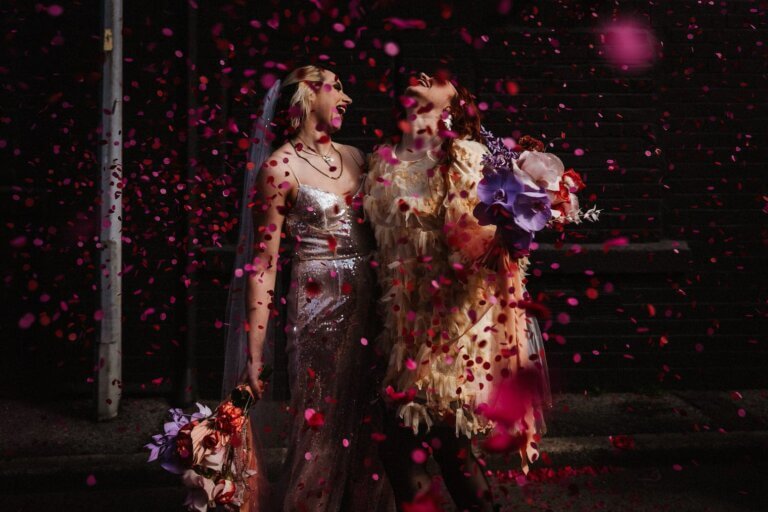
To book a non-denominational ceremony, you first need to decide the kind of ceremony you want and where you want it to be hosted. Once you know the kind of ceremony you’d like, speak to registrars and celebrants to see who can match the vision you have.
Browse our diverse range of fabulous venues and celebrants to make a start on planning your perfect wedding.
Who plans a non-denominational wedding ceremony?
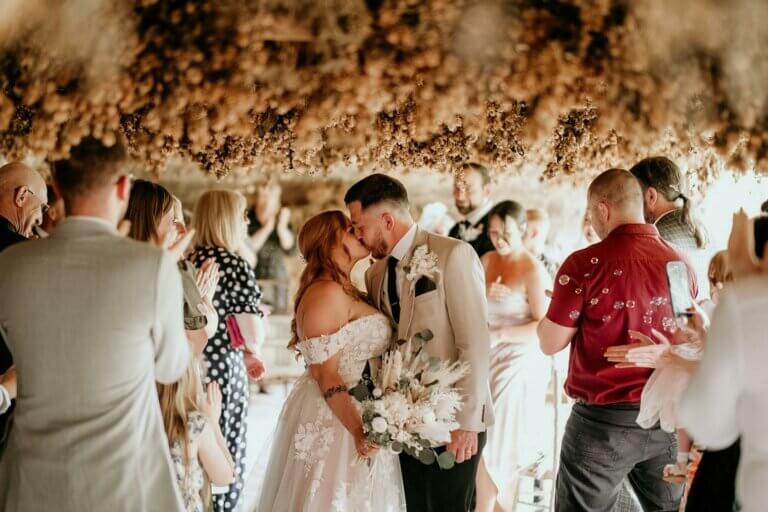
You no doubt have a few thoughts about what you want from your wedding ceremony, so might be excited to plan it yourself. Many couples love planning their own wedding, and it’s a huge part of the overall experience.
You may also choose to hire a wedding planner. These experience professionals can take a lot of the time-consuming and challenging parts of wedding planning off your plate, leaving you with the fun stuff.
What comes after a non-denominational wedding ceremony?
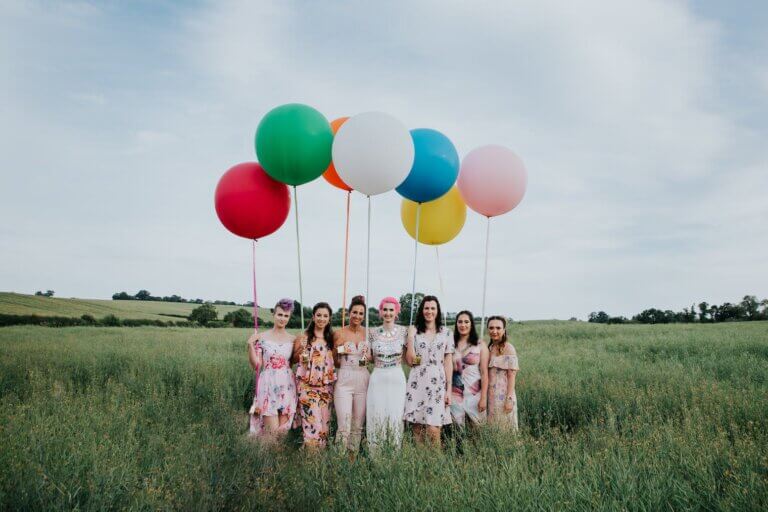
Once the ceremony is over, you can do whatever you like – whether it’s an epic party or formal three-course wedding breakfast, or you’d rather just jet right off on your honeymoon . Just like the rest of your wedding, you can do whatever suits your tastes, preferences and budget.
Plan your wedding ceremony with Bridebook
Looking to plan your perfect non-denominational wedding? Sign up to Bridebook today to access all the tools, tips and information you might need.
Browse other similar articles…
- The Ultimate Wedding Ceremony Guide
- The Ultimate Wedding Ceremony Order
- The Best Wedding Day Timeline
- How Long is a Wedding Ceremony?
